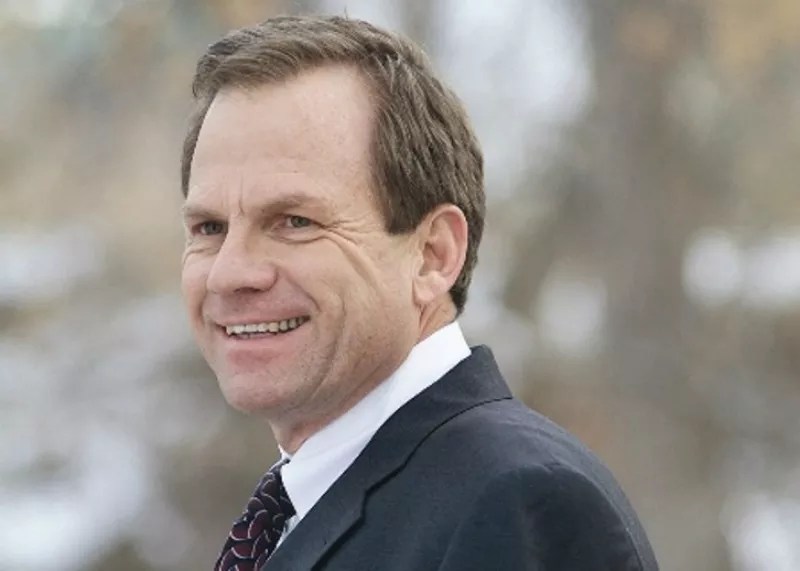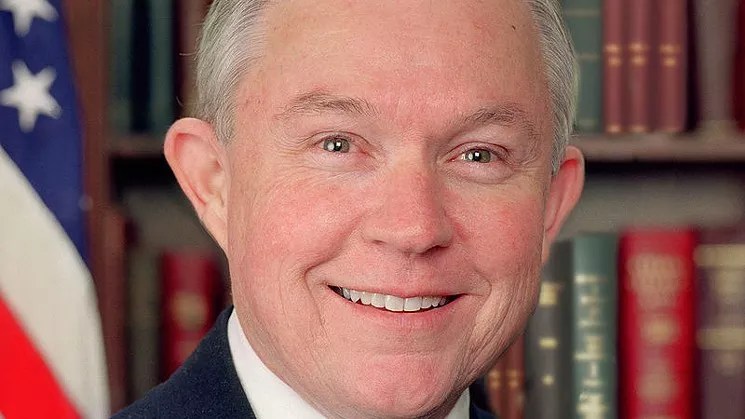
Westword photo illustration

Audio By Carbonatix
Boulder District Attorney Stan Garnett has been named to a working group of DAs from across the country who will advise the administration of President Donald Trump on marijuana policy. Garnett hopes to influence the Justice Department and presumptive attorney general Jeff Sessions, an avowed pot hater, to be thoughtful about cannabis and not make the sort of mistakes he associates with their actions to date regarding immigration, as exemplified by the chaos that followed an executive order enacting a temporary refugee ban and more.
“As a DA, I’ve been very involved with protection of the immigrant community,” Garnett says. “And watching that issue, I see some parallels between how the Trump administration may approach immigration and how they may approach marijuana.”
How so?
“It’s easy to make pronouncements – easy to talk a big game, talk in sound bites and tweets,” Garnett notes. “But if the administration is actually to be committed to enforcement of federal drug laws against the marijuana industry in Colorado and elsewhere, that would be an incredibly expensive, cumbersome and unpopular task that would require huge amounts of federal resources and shutting down businesses that have become important to the communities that they’re in.”
Garnett’s advisory role will take place under the auspices of the National District Attorneys Association.
“I’ve been the Colorado representative of the NDAA for several years,” he points out. “I’m on the board of directors, and I attend all the quarterly meetings of the organization. They put together working groups from time to time on issues of importance for prosecutors across the country. One I was pretty involved with was on juvenile prosecution and alternative approaches that we’ve implemented in Boulder, and I’ve done a fair amount on drug courts.”

Stan Garnett.
File photo
Meanwhile, he goes on, “everyone has been kind of sitting back and watching the development of federal policy on marijuana, and I’ve been pretty involved in that issue, too.”
Indeed, back in 2012, Garnett took on U.S. Attorney John Walsh by way of a public letter in which he asked the feds not to send seizure threats to any Boulder medical marijuana dispensaries that were conforming to state and local land-use regulations.
As such, Garnett was a natural choice for the marijuana working group. He’s one of fourteen district attorneys from various states, including California and Oregon, on the panel. “We’ll come up with recommendations and then communicate those to the Trump administration and see how receptive they are,” he says.
His uncertainty about the way this information may be received has plenty to do with attorney general nominee Sessions, who once said he thought the KKK was okay until he learned they smoked weed.
“I’ve followed Jeff Sessions’s career somewhat, and if I was on the Senate Judiciary Committee, I doubt I would vote to confirm him,” Garnett concedes. In regard to cannabis, he acknowledges that Sessions has “taken hard-line positions and has been resistant to any efforts to modify federal law by de-listing marijuana as a Schedule I controlled substance. He’s also made public comments indicating that he feels marijuana should be completely criminalized and be treated like other dangerous drugs, and that concerns me. It was difficult enough to get the Obama administration to give Colorado and other states the breathing room to implement the will of the voters here, and I think it’s gone well. It would be unfortunate if the federal government tried to turn back the clock.”

Attorney general nominee Jeff Sessions.
U.S. Senate
Moreover, Garnett stresses that simply announcing an impending marijuana-business shut-down would be a lot different from implementing one, as demonstrated by the refugee-ban fallout.
“Immigration is a whole different issue, and a very complex one,” he says. “But we’re seeing lots of announcements, executive orders, statements that seem to be aimed at the people who elected Mr. Trump. Take the one about the wall. He can issue an executive order and say, ‘We’re going to build a wall on the U.S.-Mexico border, and Mexico is going to pay for it.’ But in my view, accomplishing that would be virtually impossible politically, and very unwise. So we could see some very aggressive anti-marijuana statements, but they may not necessarily be followed up by a lot of action.”
Shifting positions in red states are one reason for that, Garnett continues. “I go out every year and lobby for the NDAA with the Colorado congressional delegation and with others, and for several years, even in our very conservative Republican Congress, there has been a legalization caucus growing even in some very conservative places. So I think it would be difficult to pass legislation or come up with the funding to affect federal prohibition of marijuana.”
Such political truths could even change Sessions’s mind about a crackdown, Garnett feels. “He’s a smart guy, and every prosecutor has to set priorities. If strong federal marijuana prohibition is a top priority for the Trump Justice Department, that means they’ll have to put resources into that and take them away from other things the public may be more concerned about.”
The NDAA marijuana working group has already held two conference calls on the subject of cannabis, with two more slated for February – and there’s a board meeting in March during which members are likely to huddle. Garnett hopes the advice they ultimately pass on to the Trump administration will be practical in nature.
“What’s really interesting to me is how little people outside the state of Colorado know what’s really happening here,” he reveals. “Part of my job is to say, ‘Look, let’s make sure that whatever recommendations and policies we come up with, they’re based on reality in Colorado.'”
Whether reality is important to the Trump administration is another question.